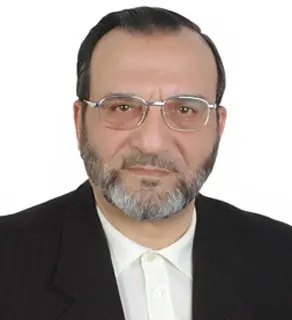Azzad’s Shariah Governance Process

1: Where Do We Get Our Halal Investing Process?
At Azzad, we follow the rules for Shariah governance established by AAOIFI, the Accounting and Auditing Organization for Islamic Financial Institutions. AAOIFI includes scholarly opinions from several Muslim schools of thought and is generally considered to be the gold standard for Islamic finance rules.
Following AAOIFI investing rules means we screen out companies that profit from interest, alcohol, tobacco, gambling, adult entertainment, insurance, conventional financial companies, and weapons. We also look at companies on a case-by-case basis and exclude some for human rights abuses or operating in an area of conflict. We exclude companies with high debt ratios and those that fail other impermissible ratios as defined by AAOIFI.
2: Where Does Additional Guidance Come From?
Our Shariah Governance process is three-fold. We leverage AAOIFI governance rules as a first step and have built a Shariah governance board as a second step.
Azzad has an active Shariah advisory board, which provides guidance to the company on matters of Shariah compliance, reviews the process for calculating zakah and purification, and provides rulings on religious financial matters when there is no precedent from AAOIFI. The board meets periodically, and also provides rulings on an as-needed basis for special cases.
And on top of that, we have an outside Shariah Compliance Officer to provide additional oversight.

Shariah Advisory Board Members

Professor Mohamad Mustafa Al Zuhili is a Syrian scholar specializing in Islamic Comparative Jurisprudence, with a PhD from Al-Azhar University in Cairo. He held the position of Dean of the College of Shariah & Islamic Studies at Sharjah University and was Deputy of the College of Shariah for Academic Affairs at Damascus University. Professor Al Zuhili has taught various courses, including Judicial Rules and Islamic Criminal Law, and has authored numerous publications and research projects on topics such as Islamic Jurisprudence, Islamic Economy, and Islamic Banking.
Sheikh Dr. Nazih Hammad is a highly accomplished scholar in Islamic Jurisprudence, particularly in contracts and financial transactions. He holds a doctorate with first honors from Cairo University and served as a professor at Umm al-Qura University in Mecca. Dr. Hammad has authored numerous publications, supervised many theses, and is a prominent member of several prestigious international Islamic Fiqh organizations, including the International Islamic Fiqh Academy and the Islamic Fiqh Council of the Muslim World League. He also holds key Shariah advisory positions in various financial institutions, such as Citi Islamic Investment Bank, Credit Suisse Islamic Investment Fund, and Minhaj Advisory, among others.


Dr. Ali Sartawi holds a Ph.D. in Legislation and Fiqh from the University of Jordan and has held numerous academic and administrative positions, including Dean of the Faculty of Law and Dean of the Faculty of Shariah at An-Najah. He has also served in advisory roles for local institutions, participated in Islamic finance conferences, and held prominent positions in the Palestinian government, including Minister of Justice and a member of the consulting committee for the Palestinian president. Currently, he is the head of the Department of Jurisprudence and Legislation and holds key supervisory roles at Takaful Insurance Company, Islamic Palestinian Bank, and Palestinian Ijarah Company.
3: Islamic Screening and Filtering Application
Azzad developed a proprietary screening tool called ISFA, the Investment Screening and Filtering Application. Every potential investment our institutional portfolio managers consider goes through ISFA to see if it passes the screens, fails them, or is flagged for more research.
